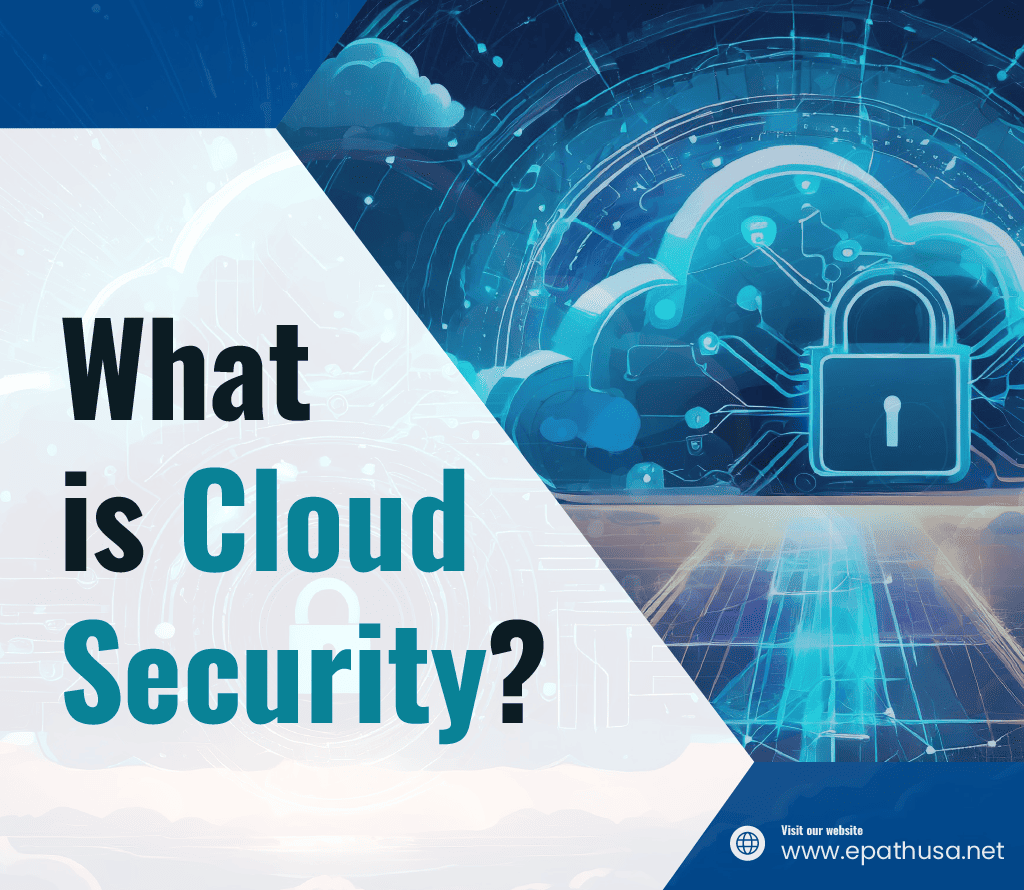Data is the lifeblood of businesses, ensuring robust security measures is paramount. With the widespread adoption of cloud computing, organizations are increasingly entrusting their data and applications to cloud service providers. However, as data breaches and cyber threats continue to escalate, understanding cloud security is essential for safeguarding sensitive information and maintaining trust with customers. In this blog, we’ll explore what cloud security is, its importance, recent updates, and key considerations for implementing effective cloud security measures.
Defining Cloud Security:
Cloud security refers to the set of policies, technologies, and controls designed to protect data, applications, and infrastructure in cloud environments. Unlike traditional on-premises IT infrastructure, where security measures are primarily controlled by the organization, cloud security operates under a shared responsibility model. In this model, the cloud service provider (CSP) is responsible for securing the underlying infrastructure, while the customer is responsible for securing their data and applications.
Importance of Cloud Security:
Cloud security is essential for several reasons:
- Data Protection: Cloud security measures help prevent unauthorized access, data breaches, and data loss, ensuring the confidentiality, integrity, and availability of sensitive information.
- Regulatory Compliance: Many industries are subject to regulatory requirements governing the protection of sensitive data. Implementing robust cloud security measures helps organizations comply with these regulations and avoid potential fines and penalties.
- Business Continuity: Effective cloud security measures mitigate the risk of cyber threats and ensure business continuity by minimizing downtime and data loss in the event of a security incident.
- Customer Trust: In an era where data privacy and security concerns are top of mind for consumers, robust cloud security measures are essential for maintaining trust and credibility with customers.
Recent Insights in Cloud Security:
Recent updates and news in cloud security have highlighted the following insights:
- Zero Trust Architecture: The adoption of Zero Trust Architecture has gained momentum in recent years, emphasizing the need to verify every user and device accessing cloud resources, regardless of their location or network perimeter.
- Container Security: With the increased use of containerization and microservices architecture, organizations are focusing on enhancing container security to protect against vulnerabilities and ensure the integrity of cloud-native applications.
- Cloud-Native Security Tools: Cloud service providers and third-party vendors are continuously innovating and releasing new cloud-native security tools and services to address evolving cyber threats and compliance requirements.
- Multi-Cloud Security: As organizations embrace multi-cloud environments for greater flexibility and scalability, ensuring consistent security policies and controls across different cloud platforms has become a top priority.
Key Components of Cloud Security:
Cloud security encompasses various components, including:
- Data Encryption: Encrypting data both in transit and at rest helps protect sensitive information from unauthorized access.
- Identity and Access Management (IAM): IAM controls ensure that only authorized users have access to cloud resources and data, reducing the risk of insider threats and unauthorized access.
- Network Security: Network security measures such as firewalls, intrusion detection systems (IDS), and virtual private networks (VPNs) protect data as it travels between users, devices, and cloud resources.
- Threat Detection and Response: Proactive threat detection mechanisms and rapid incident response capabilities help identify and mitigate security threats in real-time, minimizing the impact of security incidents.
Final words:
Understanding cloud security is essential for organizations seeking to protect their data and applications in the cloud. By implementing robust security measures and adhering to best practices, organizations can mitigate risks, comply with regulatory requirements, and maintain trust with customers. Remember, cloud security is a shared responsibility, and collaboration between organizations and cloud service providers is crucial for ensuring a secure and resilient cloud environment. Stay informed about recent updates and news in cloud security to adapt your security strategy and stay ahead of emerging threats.
















